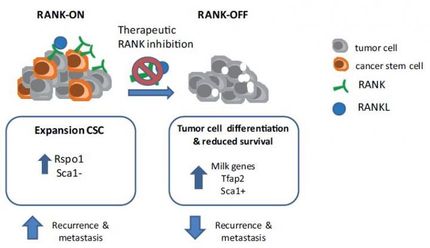Vertex Researchers Report First Demonstration of Tumor Growth Suppression and Regression In Vivo with Aurora Kinase Inhibitors
Study Published in Nature Medicine
CAMBRIDGE, Mass. In Nature medicine, researchers from Vertex Pharmaceuticals Incorporated have demonstrated for the first time that a selective small molecule inhibitor of the Aurora kinases, VX-680, profoundly reduces tumor growth in cancer models. Aurora kinases are known to be overexpressed in many tumor types, including colon cancer, breast cancer, and leukemia. Research into the function and activity of Aurora kinases over the past several years has suggested that they may play multiple roles in the development and progression of cancer, by acting as regulators of cell proliferation, by transforming normal cells into cancer cells, and by downregulating p53, one of the body's natural tumor suppressors. In the study reported today, the small molecule Aurora kinase inhibitor VX-680 blocked cancer cell proliferation, and also triggered cell death in a broad range of tumor cell types. Data from in vivo xenograft models indicated that VX-680 achieved complete inhibition of tumor growth at well-tolerated doses, and in some instances, tumor regression was observed. The report suggests that Aurora kinase inhibition provides a promising, novel approach for the treatment of multiple human malignancies. "Aurora kinases represent a potentially important class of targets for the future treatment of cancer, and we have now demonstrated for the first time that a small molecule Aurora kinase inhibitor not only blocks tumor cell proliferation but also induces tumor cell death," commented Karen Miller, Ph.D., Director of biology, Vertex Europe and senior author of the study. "The ability of VX-680 to cause tumor regression is particularly exciting." "VX-680 has demonstrated promising results in a range of tumor types," said Peter Mueller, Ph.D., Chief Scientific Officer of Vertex. "Inhibition of Aurora kinases represents a novel and highly targeted approach to cancer therapy, and we look forward to the evaluation of Aurora kinase inhibitors in the clinic in 2004."
Aurora kinases (also known as BTAK and STK15) are a family of serine- threonine kinases that have been strongly linked to tumorigenesis. Aurora kinases, which play a central role in controlling cell division, are disregulated in many types of human cancer, including leukemia, colon and breast cancer. Overexpression of Aurora kinase has been shown to promote the transformation of normal cells into cancer cells, and decreased Aurora kinase activity is associated with enhanced function of the body's normal tumor suppressor genes. Amplification of Aurora genes is associated with progression of colorectal cancer and poor prognosis in certain types of breast cancer.
Other news from the department business & finance

Get the life science industry in your inbox
By submitting this form you agree that LUMITOS AG will send you the newsletter(s) selected above by email. Your data will not be passed on to third parties. Your data will be stored and processed in accordance with our data protection regulations. LUMITOS may contact you by email for the purpose of advertising or market and opinion surveys. You can revoke your consent at any time without giving reasons to LUMITOS AG, Ernst-Augustin-Str. 2, 12489 Berlin, Germany or by e-mail at revoke@lumitos.com with effect for the future. In addition, each email contains a link to unsubscribe from the corresponding newsletter.





















































